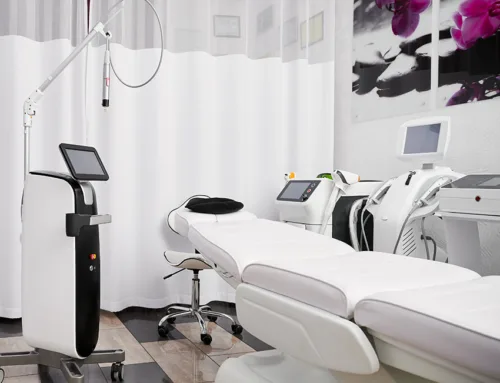The HCP Marketing Pro’s Guide to Healthcare Advertising
Healthcare professional (HCP) marketing engages doctors, pharmacists, and other medical experts to promote medical products and services. Its goal is to educate and influence their decision-making. This guide explores key strategies for effective HCP marketing, including audience targeting, impactful content creation, and data-driven approaches to enhance outcomes. But first, let’s examine what HCP marketing is and how it shapes the healthcare industry.
Key Takeaways
- HCP marketing focuses on effective engagement strategies targeting healthcare professionals, requiring a multi-channel approach for optimal communication.
- Understanding the demographics, preferences, and specialties of HCPs is critical for personalizing marketing efforts and ensuring message relevance.
- Building strong relationships with healthcare professionals through continuous engagement and credible educational content is essential for establishing trust and fostering brand loyalty.
Defining HCP Marketing
Marketing to healthcare professionals (HCPs) involves a variety of strategies aimed at promoting healthcare products and services. This marketing is uniquely crafted for HCPs, where pharmaceutical companies endeavor to build connections that educate and influence their decisions regarding pharmaceutical products. In a landscape saturated with information and promotional materials, it is crucial for brands to stand out through innovative and effective communication.
To develop a successful HCP marketing strategy, it is vital to utilize multiple communication channels. This encompasses email campaigns, social media, and targeted online advertising designed specifically for HCP audiences. Employing robust SEO tactics can also enhance the visibility of these marketing efforts, ensuring they appear prominently in search engine results. Understanding the unique needs and challenges of HCPs enables marketers to create tailored content that effectively engages and resonates with this group.
Key Elements of HCP Marketing
Identifying the demographics, expertise, and preferences of healthcare professionals is essential for effective marketing. Since HCPs are highly knowledgeable and time-constrained, segmentation based on specialty, demographics, and behavior patterns enables more targeted outreach.
HCP marketing relies on scientifically sound content that maintains high standards of accuracy and transparency. Establishing trust requires clear communication of both the benefits and limitations of healthcare products. Diverse advertising formats help capture HCPs’ attention and sustain engagement.
Understanding HCP Audiences
Healthcare professionals, due to their extensive education and busy schedules, require information that is not only trustworthy but also specifically relevant to their distinct roles and areas of expertise. It’s crucial for marketers in the healthcare sector to understand the preferences of healthcare professionals regarding HCP marketing, ensuring that their communications are both relevant and engaging.
Healthcare providers are increasingly turning to digital channels and online platforms that offer the convenience and accessibility of face-to-face interactions. This shift requires innovative HCP marketing strategies that prioritize educational content, providing solutions to the evolving challenges professionals face in their practice. Marketers must leverage interactive and data-driven approaches to engage HCPs effectively, ensuring that content is not only informative but also relevant to their daily decision-making processes.
A deep understanding of HCP motivations and interests enables marketers to develop strategies that are not only effective but also genuinely resonate with this vital group.
Targeting the Right HCP Audience
Successful HCP marketing begins with identifying the healthcare professionals most likely to benefit from a product or service. Maintaining accurate contact databases and analyzing competitor strategies can improve audience targeting.
Leveraging NPI (National Provider Identifier) data ensures campaigns reach the right medical personnel. Collaborating with expert marketers further enhances outreach and engagement with key HCPs.
Creating Accurate HCP Personas
Creating accurate HCP (Healthcare Professional) personas is crucial for enhancing targeted messaging and engagement within healthcare marketing. These personas are crafted using a combination of demographic data, such as age, gender, and location, and psychographic insights, which delve into interests, values, and behaviors. This comprehensive approach provides a rounded profile that helps marketers better understand the distinct segments of their audience, enabling them to tailor their communications to meet specific needs and preferences effectively.
Data collection for persona creation can be achieved through various methods, including surveys, interviews, and analysis of existing customer databases. These methods provide valuable insights into the motivations and influences that guide HCPs in their professional decisions and interactions. For younger healthcare professionals, incorporating current industry trends and contemporary language into messaging can be particularly effective, making the content more relevant and engaging.
Additionally, the use of clinical trial data can refine targeting strategies further, enhancing the precision of marketing efforts. This is especially beneficial for medical device manufacturers, as it helps them demonstrate the relevance and efficacy of their products, fostering stronger professional relationships with healthcare providers. Overall, well-defined HCP personas enable more personalized and impactful marketing strategies, leading to better engagement and outcomes in the healthcare sector.
Segmentation Strategies for Effective Targeting
Healthcare marketers categorize healthcare professionals using criteria such as their areas of expertise, geographical location, and behavioral tendencies. Segmenting physicians by their field of specialization, treatment inclinations, and the characteristics of their patient base enhances the personalization and efficacy of marketing initiatives. Analyzing the behaviors linked to how healthcare professionals prescribe medications can uncover trends that are instrumental for crafting messages with greater precision.
Tailoring email content specifically for segmented groups increases interaction levels among medical practitioners. By leveraging insights grounded in data analysis, those who market to healthcare providers can forge communication strategies that not only strike a chord with the intended audience but also lead to more successful outcomes.
Creating Engaging Content
Tailoring content to align with the preferences of healthcare professionals is essential for fostering effective communication and engagement. Providing personalized and intricate content is crucial in forming significant connections with these individuals. The personal touch enhances the relevance of the material, which boosts the probability that they will engage, thus being a fundamental component of a triumphant HCP marketing strategy.
With conventional methods of engaging healthcare professionals losing their effectiveness, adopting novel strategies becomes ever more vital. By tracking website traffic and user interaction, insights can be gleaned about which types of content capture the interest of healthcare professionals most effectively. This data enables an ongoing refinement process for HCP marketing efforts.
Educational and Informative Content
Healthcare professionals, given their advanced educational backgrounds and time constraints, demand content that is both accurate and pertinent. For successful HCP marketing efforts, it’s vital to distribute material that not only educates but also makes a meaningful impact. Such content should encourage practical application.
Providing healthcare professionals with educational resources can significantly raise the perceived value of a brand within this audience. Video advertisements serve as an effective medium in HCP marketing by offering visual narratives, simplifying intricate subjects into understandable formats, and delivering instructional guides that effectively capture the attention of these busy individuals.
Tailoring video materials to align with the specific interests and preferences of individual healthcare professionals can lead to increased levels of interaction. Providing complimentary samples or access to clinical research allows them firsthand product evaluation opportunities.
Utilizing Multimedia Formats
Employing a range of multimedia formats can captivate a substantial segment of the healthcare professional audience and convey information imaginatively. The use of video content within HCP marketing holds distinct advantages, such as fostering engagement, amplifying brand visibility, and stimulating lead acquisition through the creation of engaging content. Around 25% of marketers dedicated to targeting healthcare professionals are incorporating podcasts and audio material in their strategies due to their proven success in connecting with this particular demographic.
By harnessing an array of platforms and mediums for disseminating messages, it’s possible to connect with HCPs via their preferred methods of communication. This approach not only bolsters engagement levels but also significantly enhances the effectiveness of marketing efforts directed at healthcare professionals.
Leveraging Digital Channels for HCP Marketing
Multichannel marketing for healthcare professionals encompasses the use of various platforms. The objective is to convey relevant information regarding medical offerings to these experts. Email, webinars, and social media are among the digital marketing channels that prove effective in engaging with healthcare professionals. It’s essential to strategically leverage these mediums to garner the attention of HCPs and achieve successful marketing outcomes.
For impactful engagement with healthcare professionals, digital marketing efforts must align seamlessly with a broader content strategy. Analyzing competitor strategies enables brands not only to spot potential gaps but also to discover new avenues within HCP marketing that may have been previously overlooked. Utilizing tools such as email campaigns, social media presence, and targeted digital advertising can be powerful ways to generate excitement around events and bolster interactions with HCPs.
Email Marketing for Direct Communication
Email marketing is a crucial medium for providing pertinent details straight to healthcare professionals. As a favored mode of correspondence among these individuals, it stands as a critical element in any HCP marketing plan. Engaging and directing traffic are both bolstered by targeted email tactics employed within successful HCP marketing initiatives.
The creation of well-composed emails bolsters trust and credibility, which favorably affects the standing of the brand amongst healthcare professionals. Monitoring email open rates is an essential performance indicator that reveals how successfully messages resonate with them, granting marketers the opportunity to perpetually refine their marketing strategies.
Social Media Platforms
LinkedIn, X (previously known as Twitter), and Facebook offer ample opportunities for engaging a professional audience within the realm of HCP marketing. The vast majority of healthcare professionals have engaged with pharmaceutical companies on these social media platforms, showcasing significant potential for interaction.
For HCP marketing efforts to be particularly impactful, video content proves highly effective. It transforms complex information into an attractive visual format that garners increased engagement from healthcare professionals. These social media platforms are crucial in forging connections with this demographic and circulating pertinent content, cementing their essential role in contemporary marketing strategies directed at healthcare providers.
SEO and Online Advertising
Implementing SEO strategies is crucial for enhancing visibility in HCP marketing. Digital healthcare advertising becomes especially effective during medical conferences, enabling personalized interactions and targeted messaging. Email marketing and social media campaigns further amplify reach and engagement, making them key components of digital healthcare advertising.
Using tailored target lists enhances the precision of HCP marketing efforts, ensuring that communications reach the right healthcare professionals. A well-executed digital marketing strategy is essential for establishing strong connections and maximizing impact.
Personalization Through Data Analytics
Data analytics is fundamental to optimizing marketing strategies for healthcare professionals. Personalized marketing strengthens relationships by delivering relevant and meaningful communication. By leveraging data-driven insights into HCP needs and preferences, marketers can create more engaging and effective interactions.
Analyzing customer lifetime value (CLV) helps assess the long-term revenue potential of HCP relationships, providing valuable insights for strategic decision-making and sustained engagement.
Collecting and Analyzing Data
Surveys, interviews, and focus groups are effective methods to gather insights on HCP preferences. Leveraging data from customer feedback surveys enhances the understanding of HCP preferences and improves marketing strategies. Market research and data analytics facilitate audience segmentation and message tailoring.
Regular data analysis ensures effectiveness and allows for strategy adjustments based on HCP engagement. CRM systems collect and analyze data from various interactions to form comprehensive profiles of healthcare professionals, providing valuable insights for personalized marketing.
Tailoring Messages Based on Insights
Businesses should utilize data from campaign tracking and customer feedback analysis to refine their HCP marketing strategies. Crafting messages tailored to the specific interests of healthcare professionals can significantly enhance engagement. Studies show that personalized marketing in this sector delivers a return on investment five to eight times higher than standard campaigns.
Data-driven insights enable healthcare marketers to create more compelling and relevant content that resonates with their target audience. This approach not only improves outcomes but also strengthens relationships with healthcare providers.
Building Strong Relationships with HCPs
Trust is the cornerstone of effective healthcare professional marketing. Beyond influencing decisions, successful HCP marketing fosters genuine engagement that shapes patient care and strengthens professional relationships. Brands that prioritize meaningful connections with healthcare providers stand out, driving greater professional involvement and influencing prescribing behaviors.
Moving from transactional interactions to authentic, value-driven engagement builds long-term trust and collaboration in the pharmaceutical industry. Delivering personalized, educational content not only showcases expertise but also reinforces credibility. For medical device manufacturers, demonstrating how their innovations improve patient outcomes can further strengthen these relationships, positioning their brand as a trusted partner in healthcare.
Ongoing Engagement and Thought Leadership
By cultivating thought leadership, brands can garner the confidence of healthcare professionals and establish themselves as authoritative figures in their field. Engaging regularly with HCPs by providing educational material and insights into the industry solidifies a brand’s position as a leading voice within the medical community.
Leveraging perspectives from key opinion leaders amplifies the authenticity of marketing content and strategies. Persistent input from healthcare professionals is crucial for elevating interaction levels and fine-tuning approaches to guarantee that marketing efforts are pertinent and resonate effectively.
Providing Value Through Continuing Medical Education
Providing educational resources is crucial for the improvement of knowledge and skills among healthcare professionals. Courses in accredited Continuing Medical Education (CME) expand the expertise of healthcare providers, promoting their professional growth and increasing involvement. When these educational resources are customized to meet the specific needs of HCPs, they become even more beneficial and pertinent, thereby establishing robust relationships.
By posing thought-provoking questions during conversations with HCPs, one can reveal their unique difficulties. This enhanced communication leads to a better understanding that informs the development of more focused and impactful educational content.
Measuring the Success of HCP Marketing Campaigns
It is essential to monitor performance indicators to fine-tune HCP marketing campaigns and pinpoint the most successful strategies. By keeping a close eye on these metrics, marketers can significantly boost the efficacy of their HCP marketing endeavors by consistently refining and enhancing them. Notably, conversion rates shed light on how well these marketing efforts are at steering potential clients through the sales funnel, offering crucial insights for strategic decision-making.
For sustained success in HCP marketing, it’s important to continually watch over campaign performance with an eye toward adjustments and replication of effective tactics. Conducting regular checks on audience statistics and key performance indicators helps sharpen HCP marketing efforts so they stay potent and meaningful over time.
Key Performance Indicators (KPIs)
Crafting tailored messages significantly enhances engagement with healthcare professionals, making it a crucial performance indicator for evaluating campaign success. Partnering with an experienced HCP marketing firm can greatly improve campaign effectiveness by providing valuable insights and strategic approaches.
However, measuring success in HCP marketing comes with challenges, particularly in tracking results and addressing healthcare professionals’ reluctance to share contact information. To overcome these obstacles, marketers can leverage web analytics tools and tracking pixels, ensuring access to accurate, comprehensive data for evaluating campaign performance.
Adjusting Strategies Based on Metrics
Interactions with healthcare providers offer critical feedback, helping marketers refine their strategies and tailor messaging for greater relevance. The customer acquisition cost (CAC) is a key metric for assessing the efficiency of marketing efforts in attracting new HCPs, providing essential data for strategic decision-making.
Another vital KPI is the conversion rate, which reflects the percentage of visitors who take meaningful actions that lead to customer acquisition. By analyzing campaign performance before major events like medical conferences, marketers can implement data-driven adjustments to optimize results and drive continuous improvement.
Common Challenges in HCP Marketing
Marketing professionals must skillfully distribute resources across various channels to prevent inefficiencies caused by inconsequential messaging. Adapting to the swift evolution of market trends and technological advancements is challenging when trying to sustain a steadfast and successful marketing approach.
The stringent rules governing pharmaceutical advertising introduce additional intricacies in crafting content, mandating meticulous adherence for both efficacy and legal compliance in marketing initiatives. To seize the brief attention windows of healthcare professionals, it’s crucial to produce high-quality content that captivates their interest.
Attribution and Data Privacy Issues
Marketers often struggle with measuring campaign success due to limited tracking options, making it difficult to link marketing efforts directly to tangible results. Compliance with General Data Protection Regulation (GDPR) and Health Insurance Portability and Accountability Act (HIPAA) regulations adds another challenge, requiring careful planning when collecting and utilizing data.
Adhering to these regulations is crucial for maintaining trust with healthcare professionals and avoiding legal risks. A well-structured approach to data management not only ensures compliance but also strengthens credibility in the HCP marketing space.
Overcoming Engagement Barriers
Engaging healthcare professionals (HCPs) can be challenging due to their limited availability, information overload, and general disinterest in promotional content. To address these obstacles, marketers must tailor their messages and provide relevant, value-driven content that respects HCPs’ time constraints. A strategic approach enhances engagement and maximizes the effectiveness of marketing efforts.
Consistent communication and ongoing support are essential for building strong relationships with HCPs. By offering continuous educational opportunities and practical tools, marketers can encourage repeat interactions and demonstrate their commitment to HCP success, ultimately strengthening marketing impact.
Partnering with Experts for Enhanced HCP Marketing
Collaborating with specialized agencies can significantly improve HCP marketing efforts. These experts bring in-depth industry knowledge and tailored strategies designed specifically for the healthcare sector. Partnering with professionals ensures that marketing messages resonate with HCPs, increasing engagement and optimizing campaign success.
Strategic partnerships play a crucial role in achieving superior marketing outcomes. Aligning with experienced agencies leads to more effective outreach, helping brands connect with healthcare providers in a meaningful way.
Choosing the Right Partner
Selecting the right healthcare marketing experts enhances campaign effectiveness and strengthens interactions with HCPs. Specialized agencies and consultants provide industry-specific expertise, enabling marketers to develop highly targeted and impactful campaigns.
Research-backed case studies demonstrate that partnering with niche marketing agencies improves HCP engagement and overall campaign performance. By leveraging expert insights, companies can refine their strategies and achieve measurable success.
Summary
Effective HCP marketing requires a strategic, data-driven approach that deeply understands healthcare professionals’ unique needs and preferences. By developing well-defined HCP personas, segmenting audiences intelligently, and utilizing digital channels effectively, marketers can create content that truly resonates with their target audience.
Maintaining long-term relationships with HCPs depends on consistent engagement and access to valuable educational materials. Measuring campaign performance and refining strategies based on data-driven insights ensure continuous improvement. Additionally, collaborating with experienced healthcare marketing professionals further enhances these efforts, leading to impactful, results-driven campaigns.









